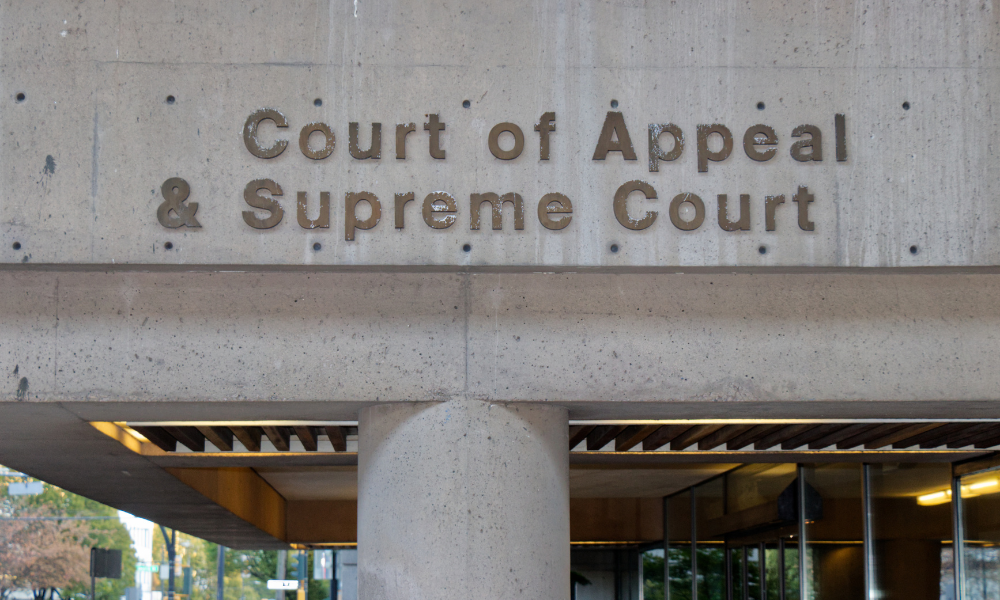
BC College of Nurses and Midwives accused of breaching legal advice privilege

In a case involving a permanent injunction against the delivery of midwifery services, the British Columbia Supreme Court has ruled that the BC College of Nurses and Midwives rebutted the presumed prejudice arising from the seizure of privileged materials.
In British Columbia College of Nurses and Midwives v Lemay, 2025 BCSC 1000, the petitioner College regulated the midwifery profession within the province. The respondent in this matter was never a College registrant.
In February 2000, the College obtained a permanent injunction by consent to prevent the respondent from performing midwifery services. A judge found the respondent in criminal contempt of court in January 2002 based on a violation of the injunction and sentenced her to five months’ imprisonment in July 2002.
In 2018, another judge amended the injunction to incorporate adjustments to the regulations governing the original consent order.
In 2024, the College commenced an investigation to determine whether the respondent had resumed her unauthorized midwifery practice. It successfully applied for an order under s. 29 of BC’s Health Professions Act, 1996, which allowed inspectors to enter her residence.
The Royal Canadian Mounted Police also acquired search warrants under ss. 487 and 487.1(1) of the Criminal Code, 1985, in connection with its investigation into criminal negligence causing death and failure to provide necessities of life.
The College and RCMP both executed their searches on Jan. 30, 2024. Legal counsel with the College’s inquiry, discipline, and monitoring department led the regulator’s search. The College seized items from the residence, including a box containing various documents.
The respondent requested an order to remove the lead investigator from the case file. She alleged that legal advice privilege governed some files in the box and that the College breached this privilege when its counsel reviewed the box’s contents.
The Supreme Court of British Columbia dismissed the respondent’s applications to stay the proceedings and remove the College’s counsel from the file. The court saw no need to issue an order to remedy a breach of legal advice privilege.
The court acknowledged concerns about how the College’s counsel handled the box. However, the court ruled that the College met the applicable test in MacDonald Estate v. Martin, 1990 CanLII 32 (SCC), [1990] 3 SCR 1235, and Celanese Canada Inc. v. Murray Demolition Corp., 2006 SCC 36.
The court explained that the College succeeded in rebutting the presumption of prejudice, specifically that a reasonably informed person would believe that no use of confidential information would occur. The court reviewed the Celanese factors to decide whether to remove the College’s counsel.
Regarding the first factor, the court held that the College acquired the privileged documents via inadvertence and sloppy investigative work. The court said the College’s counsel would have known about the risk that the contents included privileged documents upon carefully reviewing the box.
For the second factor, the court saw no evidence that the College or its counsel did anything when they recognized that the box could contain documents potentially subject to solicitor-client privilege. The court determined that the first two factors weighed in favour of removing counsel from the file.
As to the third factor, the court accepted counsel’s evidence as an experienced lawyer that they did not review the privileged material and that the College returned the box to the respondent without copying the documents. The court said this factor counterbalanced the first two and supported counsel’s continued involvement in the file.
On the fourth factor, the court ruled that any prejudice due to a brief scan of the files, many of which seemed to be public court documents, was minimal to non-existent. The court said this factor also supported permitting the College’s counsel to continue acting on this file.
Regarding the fifth factor, the court held that the litigation was at an early stage since the College had not yet initiated any application based on the outcome of its recent investigation. The court deemed this factor neutral.
The court explained that the sixth factor – the potential effectiveness of a firewall or other precautionary steps to avoid mischief – was irrelevant, given counsel’s evidence that they did not review the privileged material.
Next, the court addressed the application seeking a stay of proceedings, which it rejected. The court acknowledged that the College’s counsel was not serious enough in fulfilling their responsibilities as a lawyer executing what was effectively a civil search warrant.
The court added that counsel should have recognized that an independent solicitor or some other individual should have reviewed the folders possibly including solicitor-client information and taken swift action to return the files to the respondent.
However, the court reiterated that the College had rebutted the presumed prejudice arising from the temporary and inadvertent seizure of the privileged documents. The court said letting the case proceed would not manifest, perpetuate, or aggravate any prejudice to the respondent’s rights to a fair hearing or the justice system’s integrity.